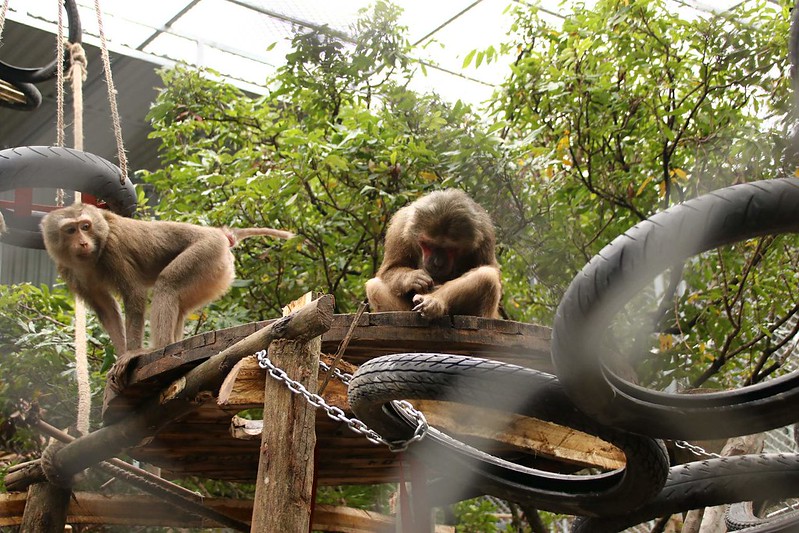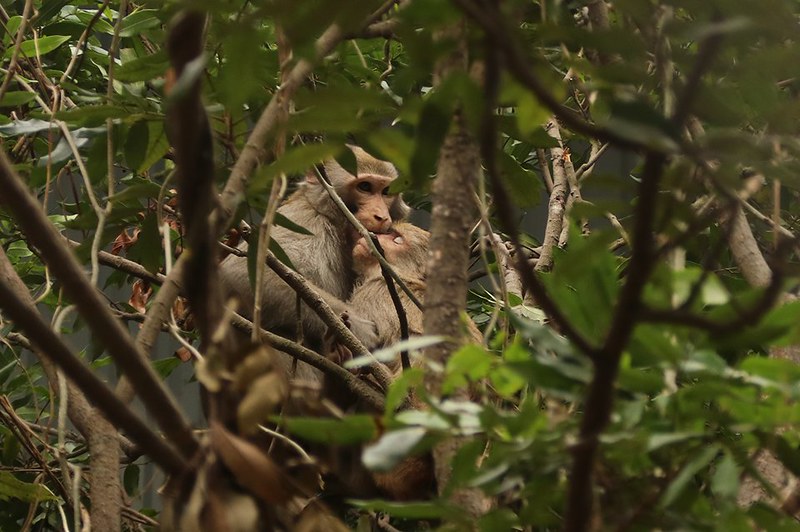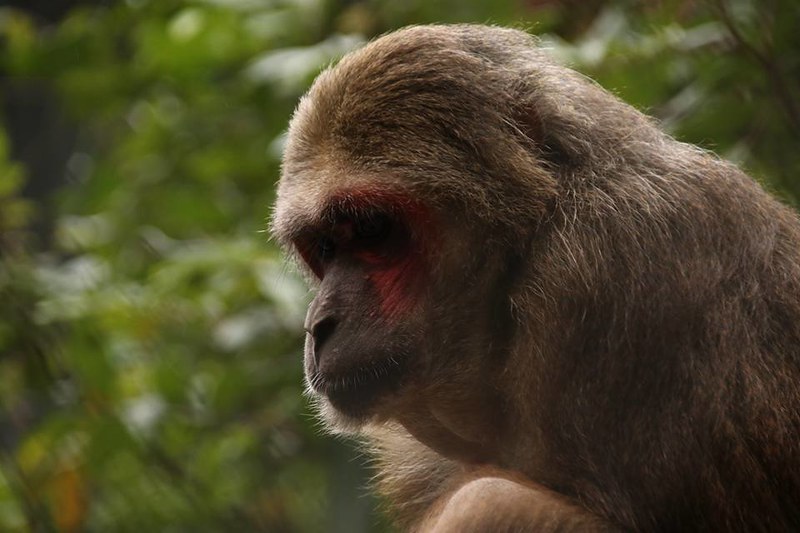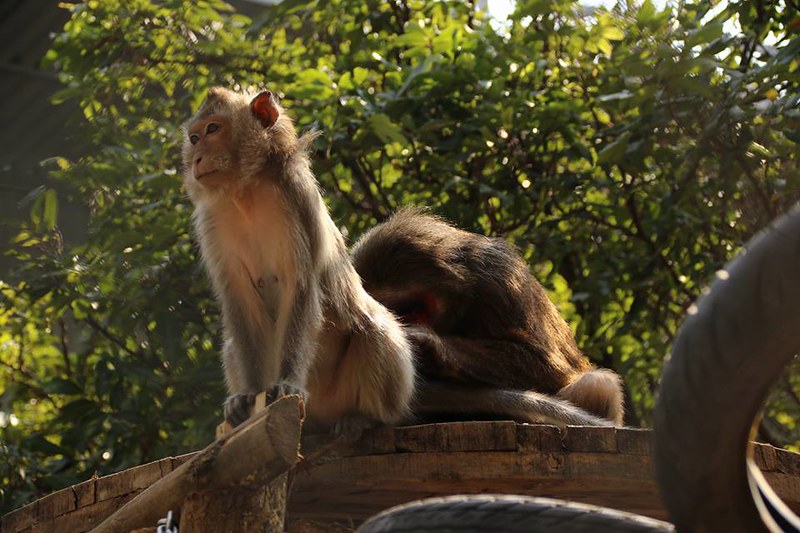Twelve monkeys rescued by female Buddhist monk receive enormous new homes so they can all live like one big family
27 February 2018
An act of compassion ensured these monkeys survived the cruelty of poachers, now animal lovers are giving them the best possible life.
For more than 20 years, Thich Dieu Mo has been quietly rescuing monkeys from poachers and giving them sanctuary in her pagoda nestled in the forested mountains of Vietnam’s northern Hai Duong province.
The region was once home to thousands of monkeys but poaching has severely depleted the population of mostly rhesus macaques and forced many to escape ever deeper into Vietnam’s shrinking forests.
Poachers have been known to use explosives to terrify monkeys, scaring them out of trees so they can be caught more easily, Dieu Mo told local media in March 2017, describing how she tended to the injuries of several monkeys hurt this way.
Her story came to public attention after it was covered by national television in a broadcast seen by a Vietnamese staff member at Animals Asia, who became concerned by the small cages in which the rescued monkeys were being kept at Nham Duong pagoda.
Shortly after the programme was aired, Animals Asia contacted the pagoda offering help to improve the welfare of the monkeys who had been kept in separate cages.

Fortunately, the offer was quickly accepted and the charity set to work helping to build an enormous enclosure at the pagoda, giving the monkeysat least 100 times more space to tear around in compared to their old cages.
The new enclosure has also been furnished with trees to climb and swing from, hanging logs to run along and swings made from tyres to play on. Best of all, the monkeys are now free to mingle and socialise with one another instead of being kept in isolation.
Animals Asia’s Animal Welfare Director Dave Neale said:
“Thich Dieu Mo’s compassion has been a lifeline for these threatened monkeys and has kept them physically safe for decades. However, the limited means of the pagoda and the lack of expertise available has meant the macaques have been living in less than ideal conditions.
“With some simple adjustments, we have been able to improve their welfare immensely. These monkeys are being given the opportunity to socialise for the first time since they were taken from the wild - a critical development for animals for whom social bonds are so important. The increased space and diversity of the enclosure will keep them active and stimulated, while preventing boredom and depression.
“We will be closely monitoring their progress and if it’s half as successful as we hope it will be, our work will provide a useful model that can be replicated elsewhere. It’s sad to say there are many hundreds if not thousands of macaques suffering similar deprivations elsewhere, even in situations where there carers are well meaning. We hope this project could prove to be a model that will help improve the lives of macaques across the country.”
Correction: This page was edited on May 7 2018 to clarify that 12 macaques are housed at the pagoda, rather than 16 as previously stated.
BACK







